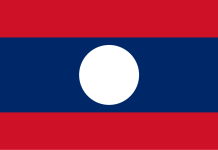The Chief Executive Officer (CEO) of Bitt Inc., Brian Popelka, in an interview with CoinDesk disclosed that the Central Bank of Nigeria (CBN) plans to boost financial inclusion by rolling out an eNaira application soon, for persons who do not have a bank account.
Bitt Inc, is a Barbados-based fintech company was picked by the CBN as its technical partner for the eNaira project.
The fintech company CEO stated that the current version of the eNaira app is for bank accounts holders.
READ ALSO: Nigeria’s Financial Access Ranking Drops As Banks Close Branches, ATMs
The digital currency currently has two applications — eNaira speed wallet (for individuals) and eNaira speed merchant wallet (for businesses).
Popelka stated that “In Nigeria, it is a methodological rollout; this is our initial stage. A phone app specific for unbanked folks will be rolling out very soon, considering the fast follow-up from us,” Popelka said in the interview.
“So that is how we see the financial inclusion question coming through. As far as interest goes, it is hard to say this early what the interest is. I imagine that the concept has a newness to it; people want to understand the inner workings of it and what to use it for.”
He noted that the launch of the eNaira app was challenging, however, the company used its previous digital currency experience in Barbados and the Eastern Caribbean.
“It is a sort of methodological rollout. We like the idea that there are stages. Nigeria has a very foursome rollout for all of the users for which we hope to get to over many years, which means that they and we, of course, are in it for the long haul,” he explained.
“Post-launch though, as you can imagine, as the initial rollouts, it is just sign-ups.
“Well, the central bank has minted and disbursed digital currencies to several key financial institutions.
“And therefore, there are merchants and consumers that are just getting into the app store, downloading the app, and moving their traditional currencies into digital format at this stage.”
Popelka stated that while the government would be unable to access the individual purchase history using the eNaira app, it would however be able to access bulk transaction histories.
He also noted that banks would have access to individual transactions to keep track of fraudulent activities.
Popelka explained that financial institutions have roles to play in ensuring more people trust and use digital currency.













